Emmanuel, Naifat, Josephine, Kasitu-Boniphace – more Tanzanians’ lives are saved thanks to PCPM
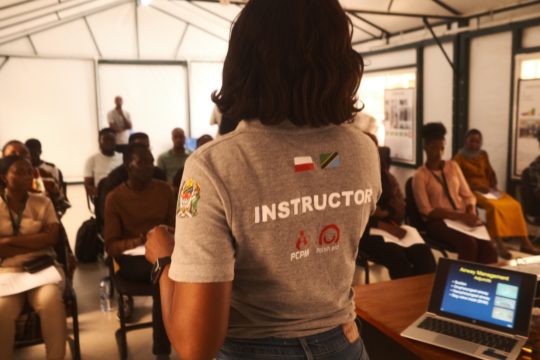
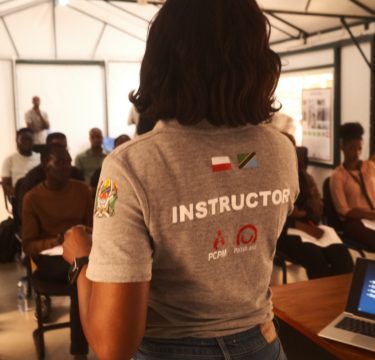
Patients of the hospitals in the Tanzanian cities of Dar es Salaam and Mwanza are healed thanks to medical training and equipment provided by the Polish Center for International Aid (PCPM). They talk about the help they have received.
The Polish Center for International Aid (PCPM) supports the development of the emergency medicine sector in Tanzania from 2022. As part of the “Polska pomoc” („Polish Aid”) project worth PLN 4.92 million (USD 1,25 million), with money provided by the Ministry of Foreign Affairs, PCPM equips Tanzanian medical facilities with rescue equipment and medical apparatus. Moreover, in the largest city of Tanzania, Dar es Salaam, the PCPM Foundation has opened a training center where 1,800 local doctors and nurses are to be trained. All of the Foundation’s activities are carried out in cooperation with the local Aga Khan Foundation, without which it would not be possible to implement the project.
Patients themselves tell of the benefits, who received help at the hospital on site that would have been impossible without support from Poland.
Emmanuel and Naifat
28-year-old Emmanuel Minja had a motorcycle accident resulting in a broken tibia in his right leg, torn tendons, and torn skin on his leg. At the regional hospital in the Temeke district of Dar es Salaam, doctors performed an X-ray of the leg. What’s important, out of 17 emergency medicine doctors who work in this hospital facility, 12 have already completed training provided by the Foundation. It is thanks to the knowledge provided by Polish specialists at the training center that local medics know how to deal with cases such as Emmanuel Minja’s serious leg injury. As Emmanuel says, the quick and efficient help at the emergency medicine department positively surprised him, and he is recovering quickly.
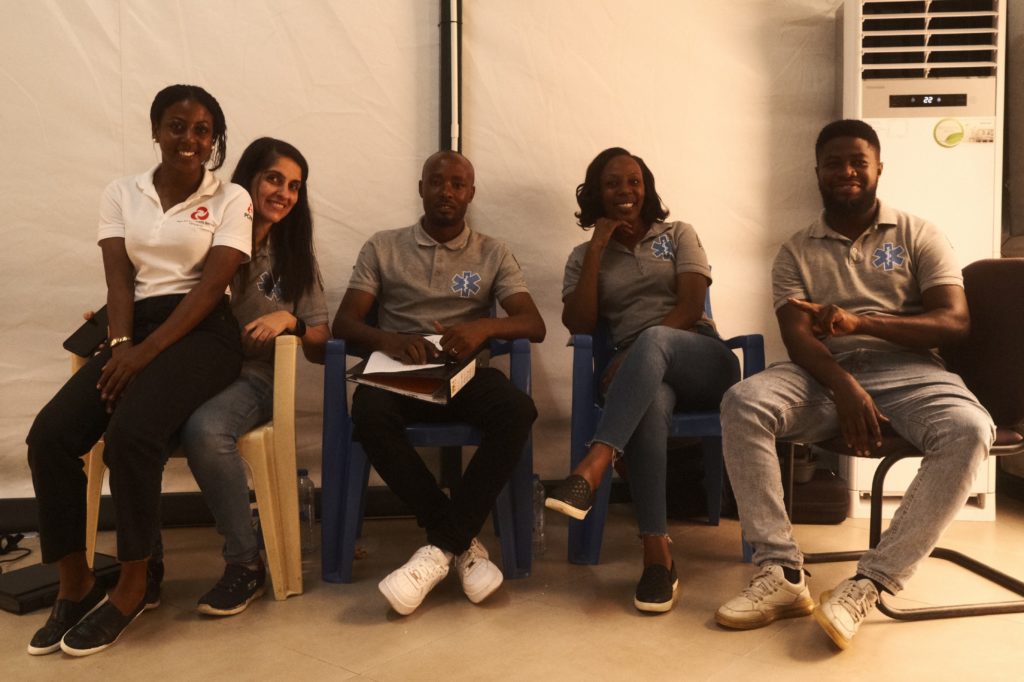
In the same hospital, is a 3.5-year-old Naifat Adan and her aunt, Sarah Saidi, who takes care of her. They went to the small emergency medicine department in a hospital in Temeke a few days ago.
– The girl began to have a high fever and could not breathe. Her eyes were also swollen. First we went to our small hospital in Gamboni, but no one there could help us. The nurse asked us if we knew what medications needed to be administered… We wouldn’t get any help there. They told us to come here, the woman tells us excitedly.
– In this hospital, we got help quickly, the doctors knew what medicines to give. They helped stabilize her breathing and the fever dropped. The girl passed all the tests, her blood was examined, and it turned out that she was attacked by bacteria. I don’t know how it would have ended if it weren’t for the help of these doctors. Perhaps Naifat would not have survived… – adds Sarah Saidi.
Josephine
The PCPM Foundation equips hospitals in Tanzania with the most critical rescue equipment to patients’ health and life, including: diagnostic equipment (ultrasound sets, ECG, cardio monitors), as well as equipment for intravenous infusions, oxygen therapy, intubation, and cardiopulmonary resuscitation.
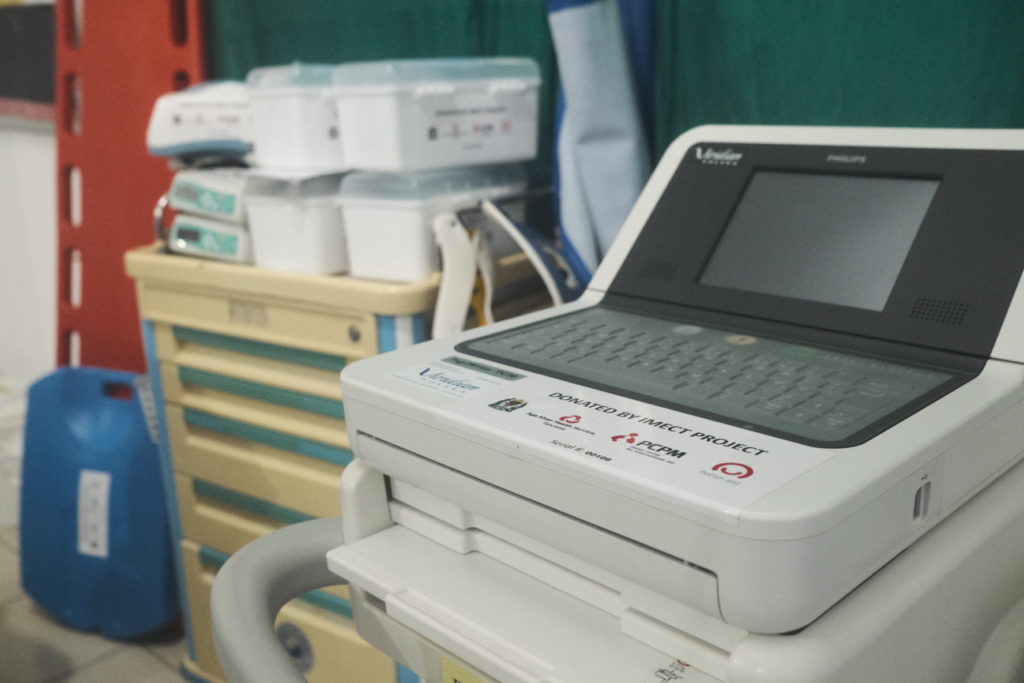
Tanzania’s health service is extremely underfunded, like other public services. The country is struggling with many socio-economic problems, which are the result of, among others, the dynamic growth of the population of this East African country. Over the last 25 years, the number of inhabitants has doubled: from 33 million to 65 million. The development of state structures will not keep pace with such a demographic boom. That is why external help, including from Poland, is so valuable and necessary.
Chanika Hospital on the outskirts of Dar es Salaam receives 200-300 patients every day, of which 5-10 are admitted to the emergency medicine department. It is in such an Emergency Department there is Tasiana Panga and 6-year-old Josephine Steven. They were also lucky to go to a hospital whose medical staff was able to help them.
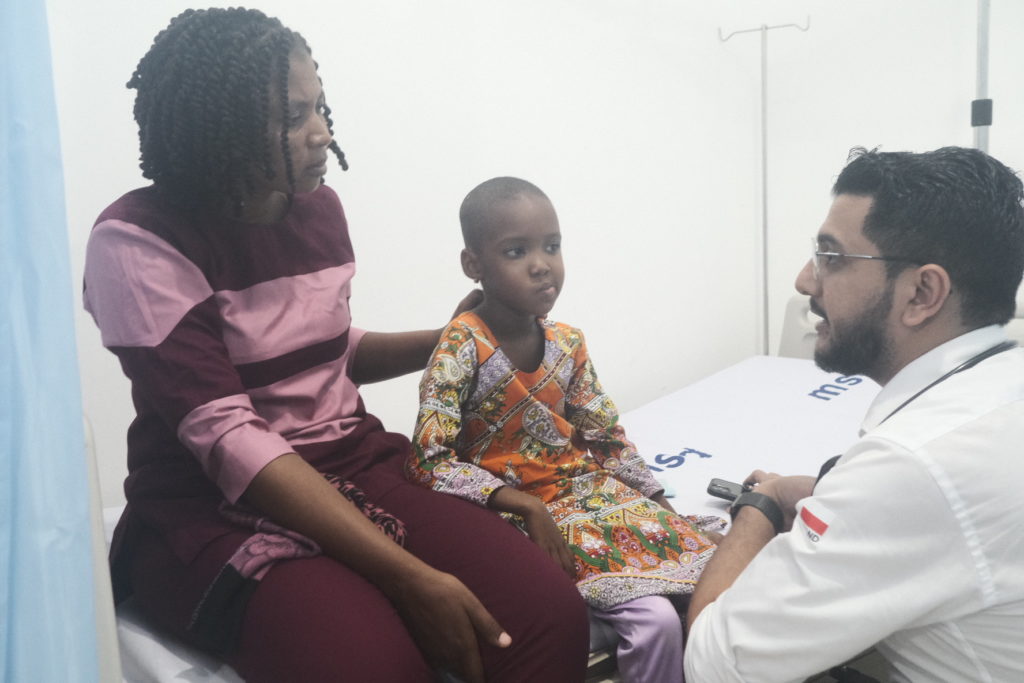
– Josephine had a high fever for two weeks and had trouble breathing. When the situation was very bad, we came here to the hospital. In the emergency department, she was given medicines and nebulization, which reduced the fever and allowed Josephine to breathe normally – says Tasiana Panga.
– I see how the situation in this hospital has improved: a month ago, my cousin had a motorcycle accident, he was bleeding a lot, but he received quick help. Previously this was impossible. It is important for us that this help is free, we do not have to pay for medicines because we would not be able to afford it – adds the woman.
Kasitu-Boniphace
In the poorest countries in the world, the most difficult social situation always occurs in the provinces and far from the capital or the largest city. It is similar in Tanzania. More than 1,000 km north of Dar es Salaam and approximately 600 km from the city of Dodoma, which is the capital of Tanzania, lies the city of Mwanza. Although it is the second largest city in the country, living conditions here are very difficult. The health service, as in Tanzania as a whole, is extremely underfinanced. There is a shortage of doctors, equipment, medicines and supplies. Fortunately, help provided by the PCPM Foundation also comes here.
Nyamagana Hospital is one of many similar hospitals in Mwanza. Kasitu-Boniphace Kennedy, 30, is in the local emergency department. He is a victim of a road accident – his motorcycle was hit by another vehicle at night. As a result, the boy suffered a broken leg, multiple skin wounds and severe bleeding. Fortunately, the doctors knew how to deal with the bleeding and quickly provided him with the necessary help.
Thanks to the help of PCPM and Poles, the health and lives of the citizens of Tanzania are saved every day. As the Polish ambassador in this country, Krzysztof Buzalski, assures, in terms of the overall foreign aid that this country receives, the project run by PCPM and the Ministry of Foreign Affairs is not large, but it is noticeable and felt by the local community because it concerns the health and life of Tanzanians.